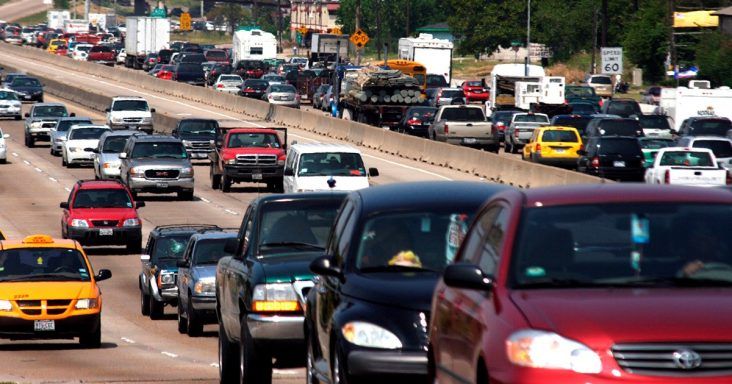Traffic congestion costs trucking industry nearly $16 billion
by March 5, 2019 3:08 pm 425 views

Traffic congestion was projected to cost the trucking industry an additional $15.74 billion in 2016, according to a new study from the American Transportation Research Institute (ATRI). The nonprofit research organization of trade group American Trucking Associations on Tuesday (March 5) released a case study to quantify how improvements to highway infrastructure can help conserve fuel and reduce emissions in the United States.
Nationwide, the trucking industry used an additional 6.87 billion gallons of fuel in 2016 because of congestion, the study shows. One of the worst traffic bottlenecks is the interchange of Interstate 285 and Interstate 85 in Atlanta and is commonly referred to as Spaghetti Junction. The study estimated the fuel consumption and emissions impacts of congestion at the interchange. It used GPS data to determine vehicle speeds by time of day, daily trip counts of the Georgia Department of Transportation and emissions factors from the U.S. Environmental Protection Agency.
If average vehicle speeds were increased to 55 mph, which have been as low as 14 mph weekday evenings, is expected to save 4.5 million gallons of fuel annually for motorists and trucking companies. Also, emissions would be reduced 17% for fine particulate matter, 5.5% for smog-forming NOx emissions and 8% for carbon dioxide emissions.
“Fleets today consider not only their bottom line but also their environmental performance,” said Mack Guest, president of LAD Truck Lines. “This case study highlights how investing in our nation’s infrastructure can serve the dual purpose of lowering transportation costs and air pollution.”
The case study is the second one ATRI has published regarding its “Fixing the 12%” research initiative. ATRI previously found that 89% of the trucking industry’s congestion costs are generated from 12% of interstate miles. Link here for the full report.
